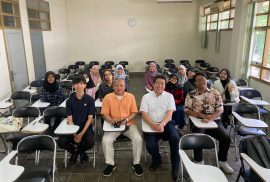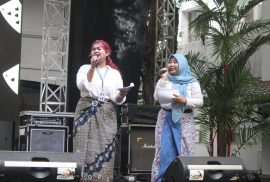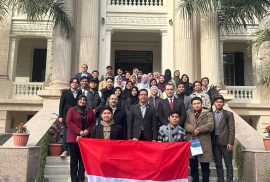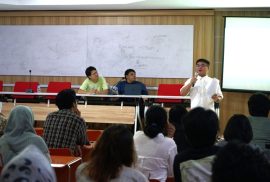On Wednesday, April 25, 2024, the UGM Master of American Studies Program held a Public Lecture on the theme of Globalization, which was presented by Prof. Carla Jones, Ph.D, Professor of Anthropology at the University of Colorado Boulder, United States. This public lecture was held online through the Zoom application which was attended by 20 students who were a combination of students of the Master of American Studies Program and the Middle Eastern Cultural Studies Program, Faculty of Cultural Sciences UGM. In this session, the topic raised in the discussion was “Globalization, Nationalism, and Cosmopolitanism”, which discussed how the impact of globalization on nationalism. The occurrence of mutual influence and the fading of borders between countries causes questions about nationalism.
Prof. Carla explained that in the era of Globalization, it creates a zone of continuous cultural interaction and exchange throughout the world, which can also be referred to as “ecumenism of globalization”. Globalization also creates a situation where previously isolated cultures are constantly colliding. The impact of this global cultural flow is: Homogeneity and cultural chaos. Homogeneity in this context refers to the commonalities that arise when cultures share ideas, goods and media. This then creates confusion and challenges due to the mixing and similarity of cultures.
In addition to this, Prof. Carla also explained about the concept of globalization from Arjun Appadurai, an Indian-American anthropologist. He explained, according to Appadurai, there are five dimensions of cultural flow in globalization: Ethnoscapes (movement or movement of people such as tourists, refugees etc.), Technoscapes: (the movement of technology such as factories, machines, etc.), Financescapes (the movement of money), Mediascapes (the movement of information and images such as TV, newspapers, etc.), Ideoscapes (the spread of ideas and ideology). The 120-minute public lecture then ended with a question and answer session and an open discussion where participants could respond to what had been presented by the speaker.






